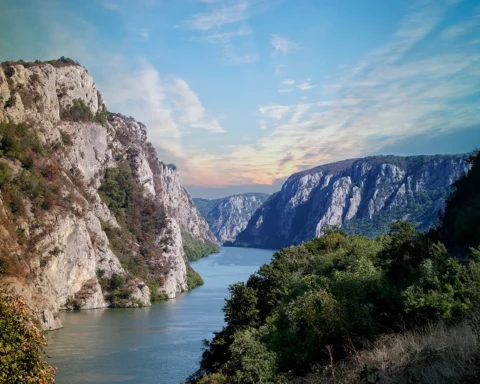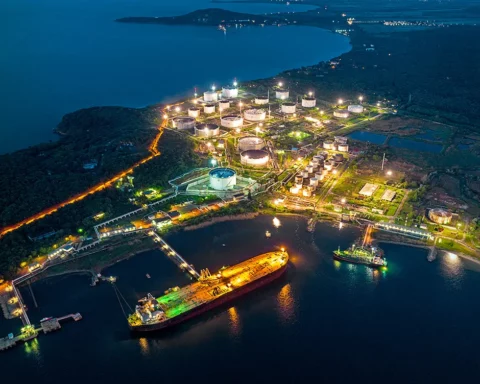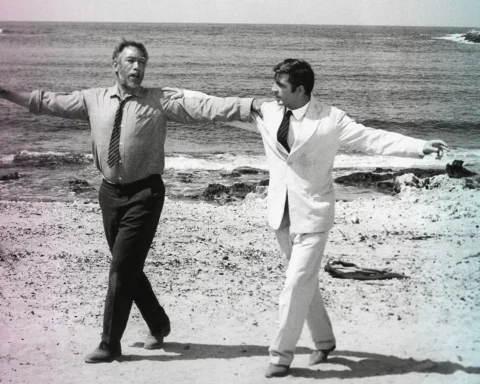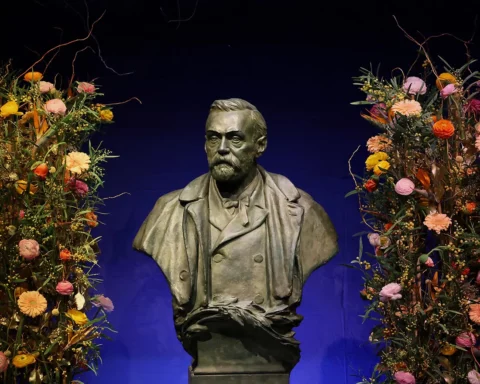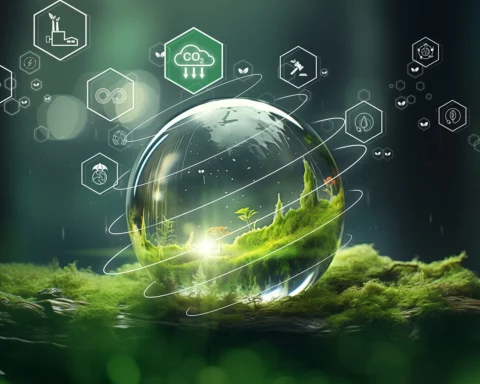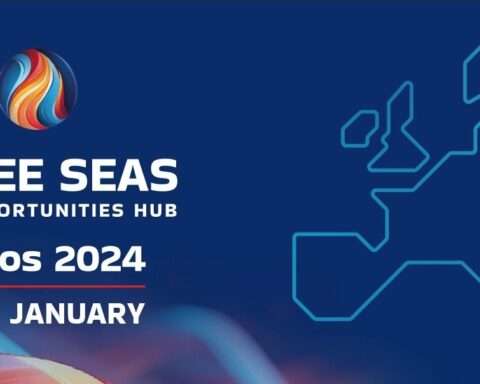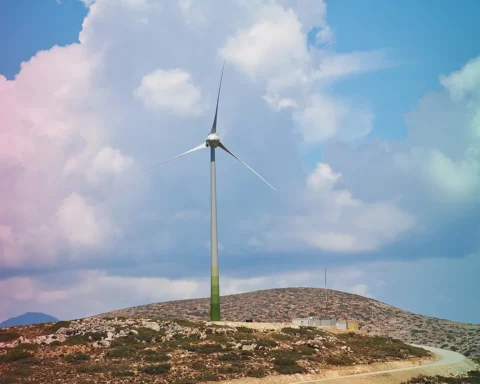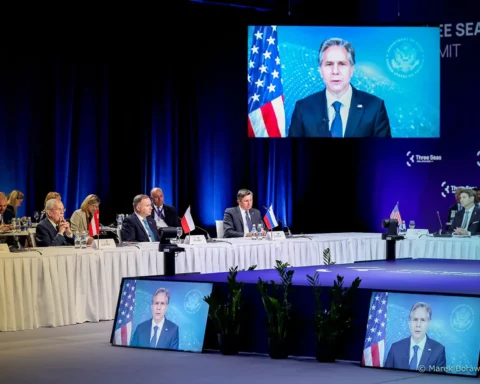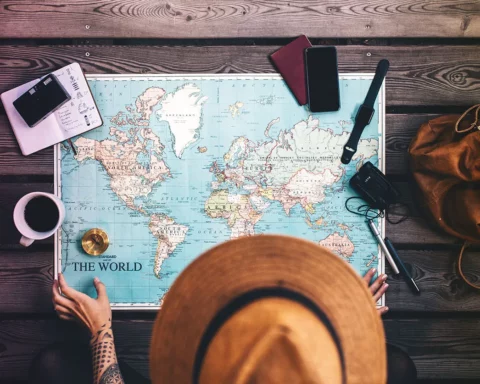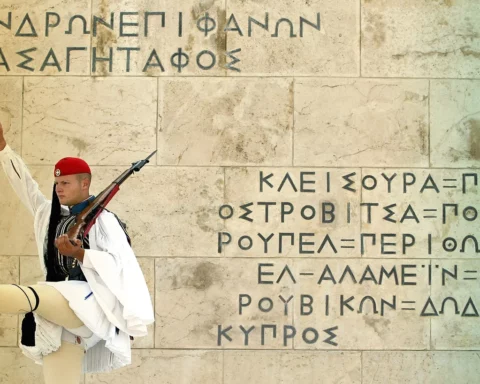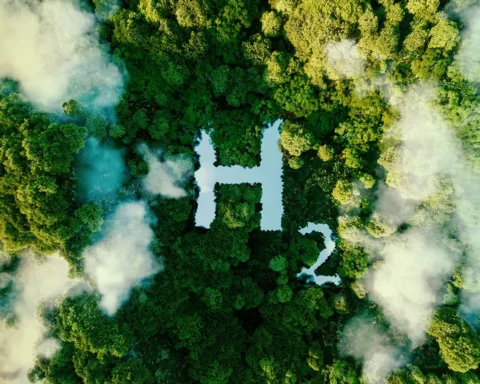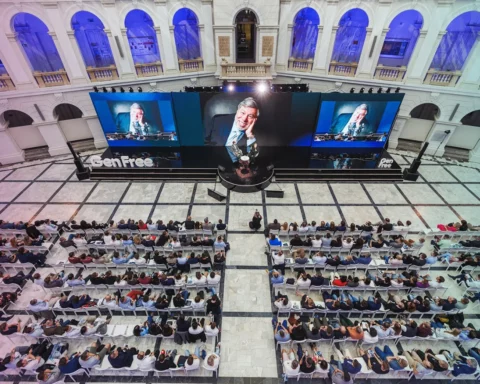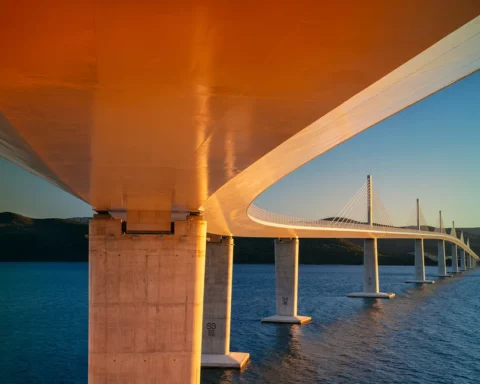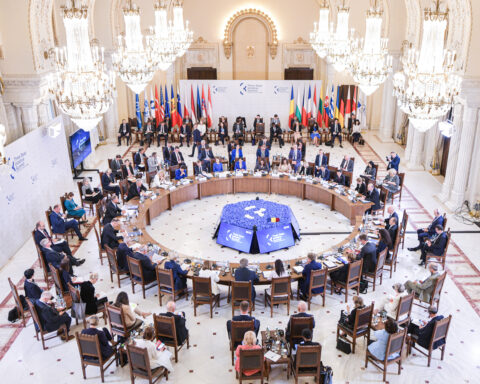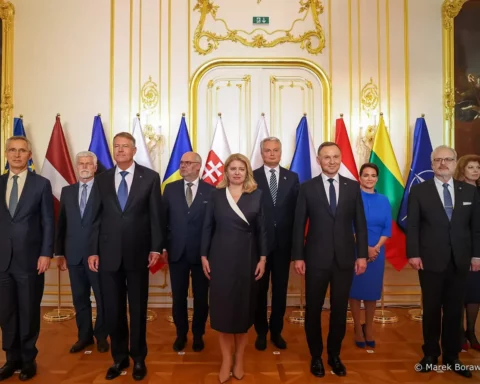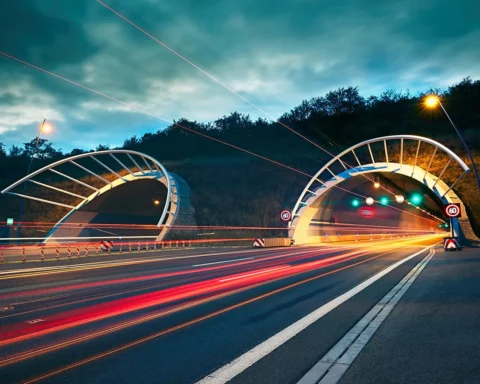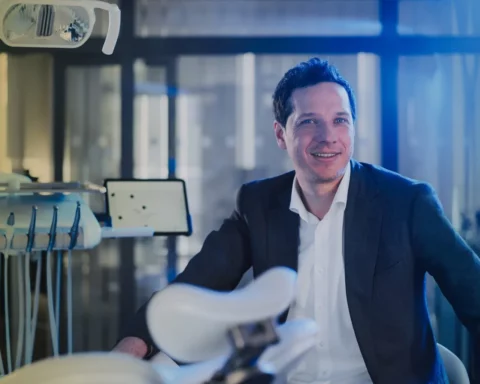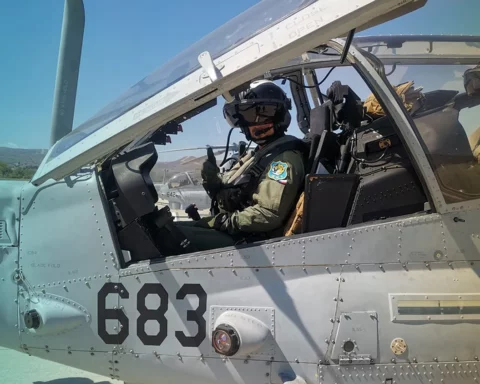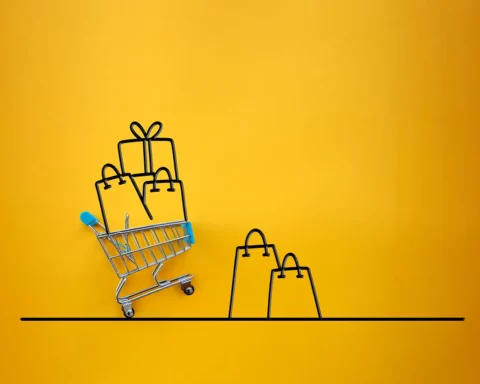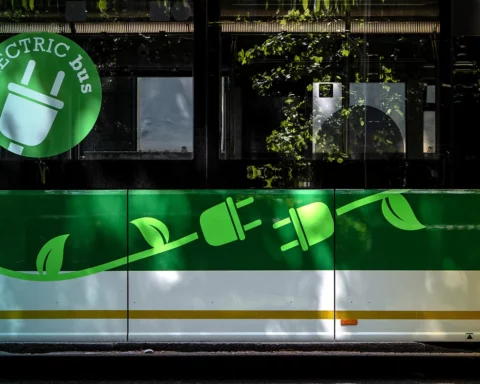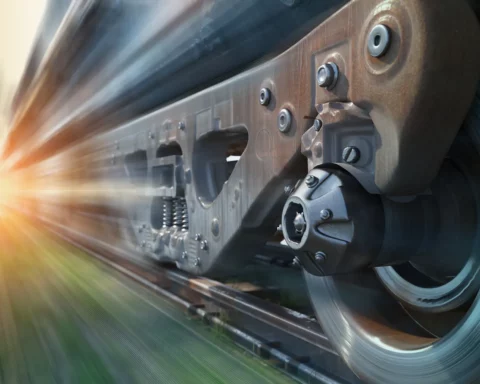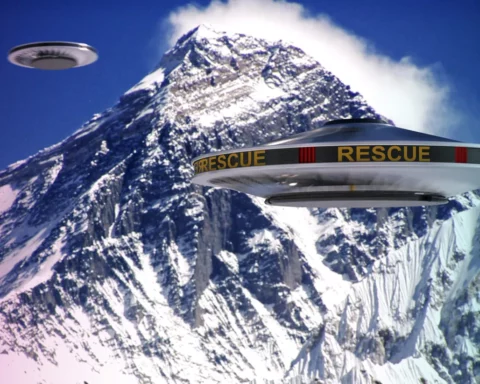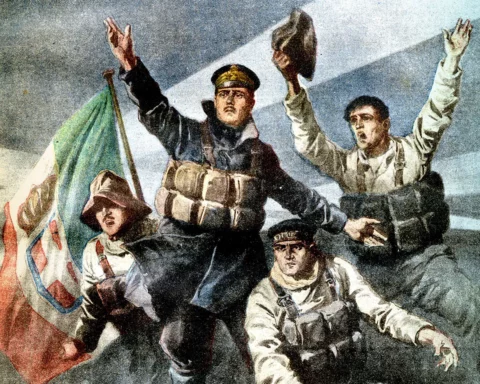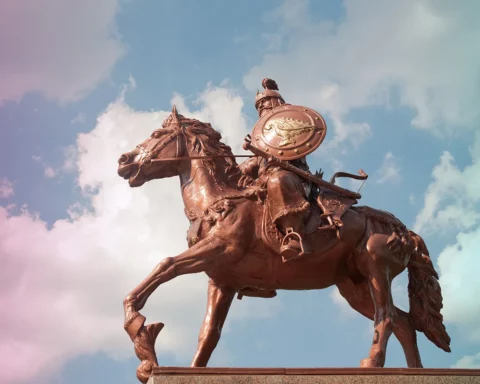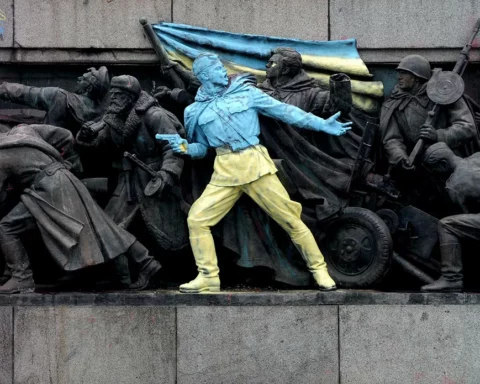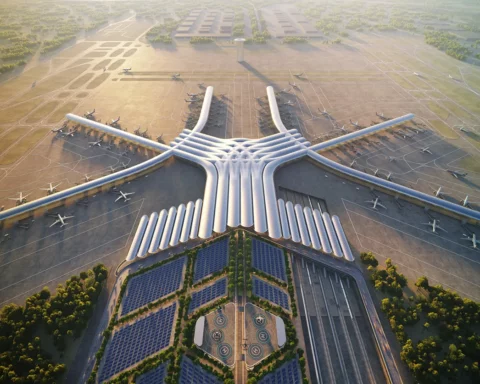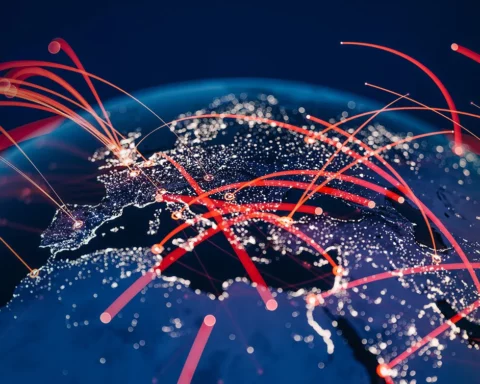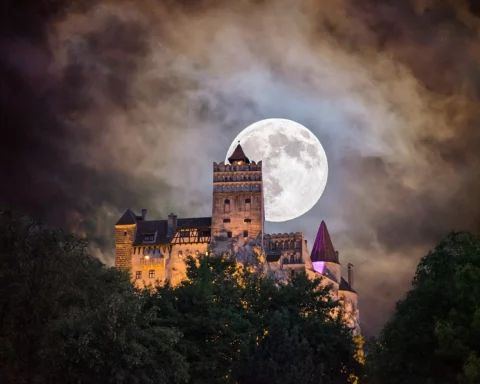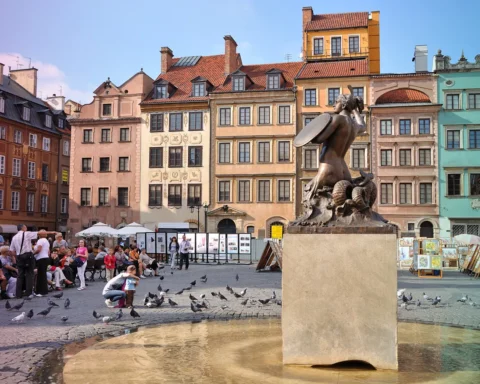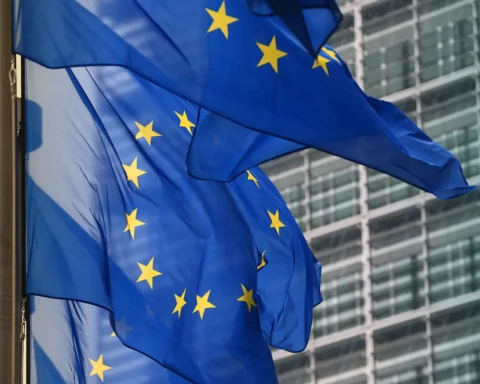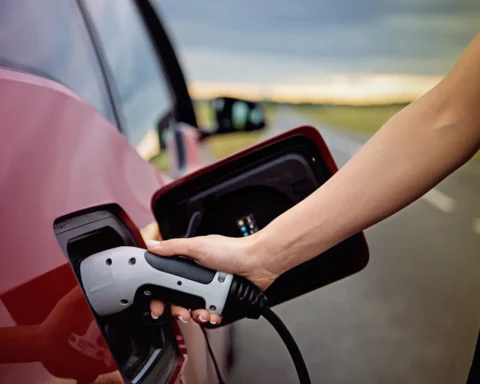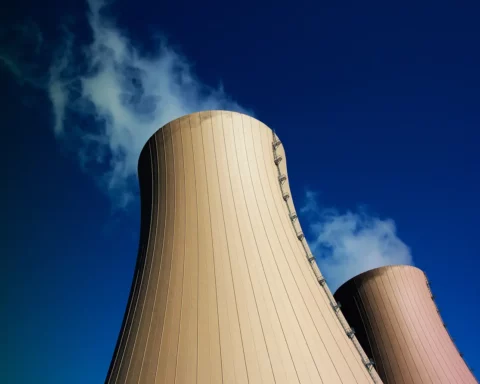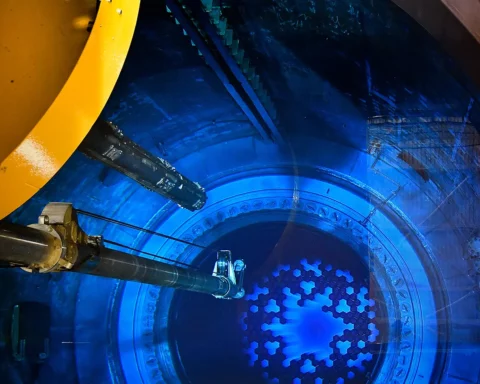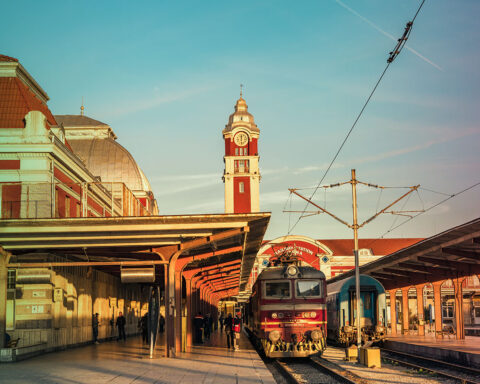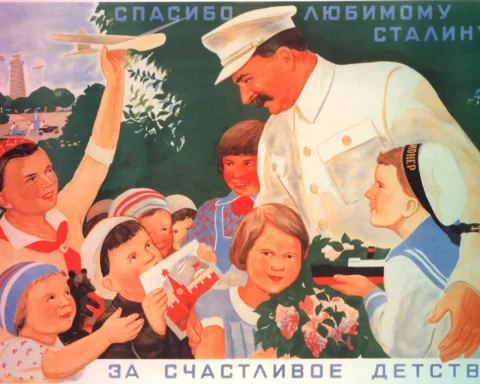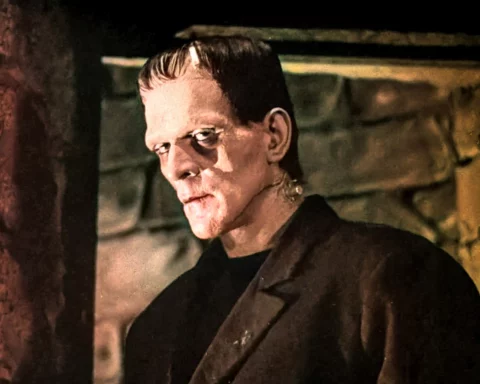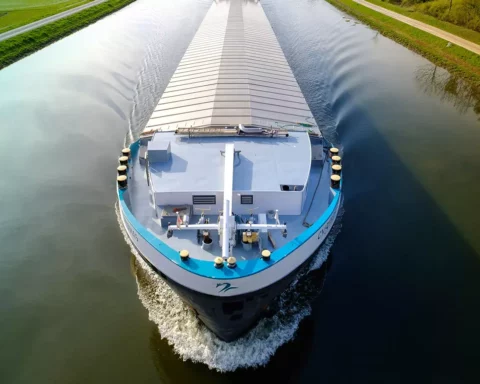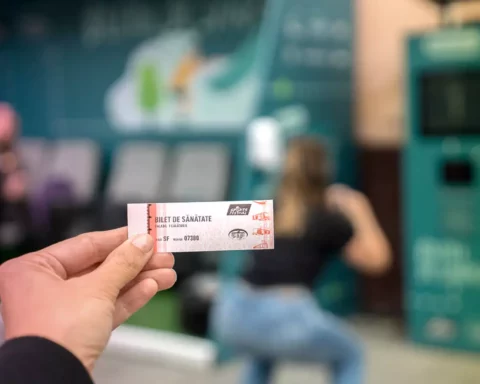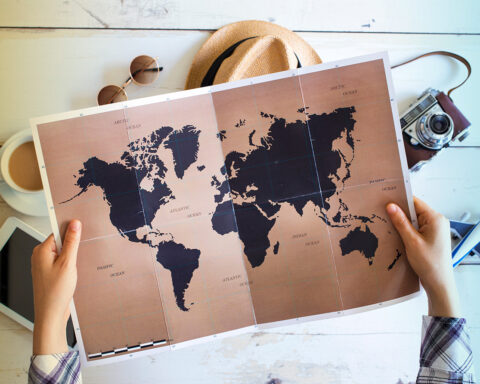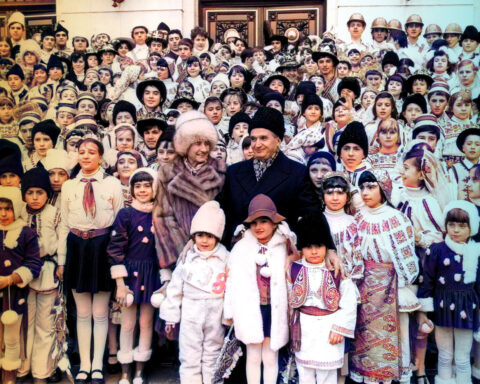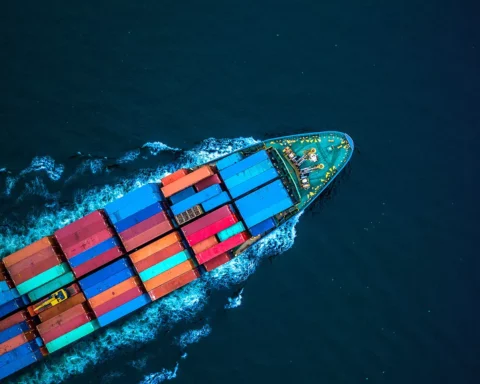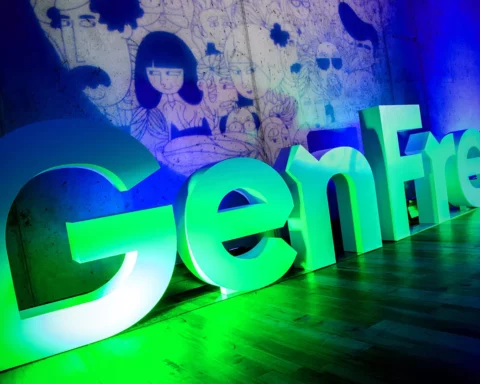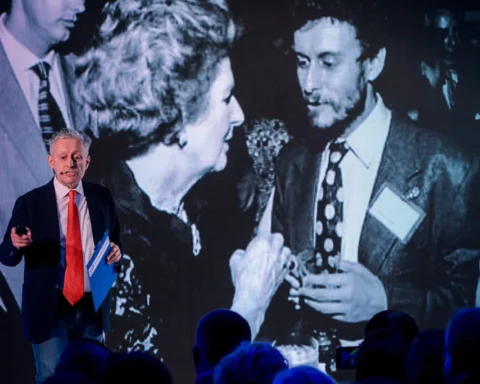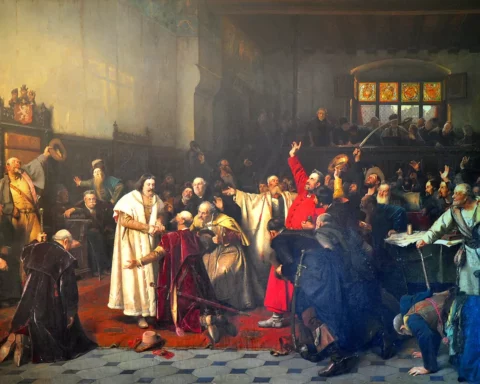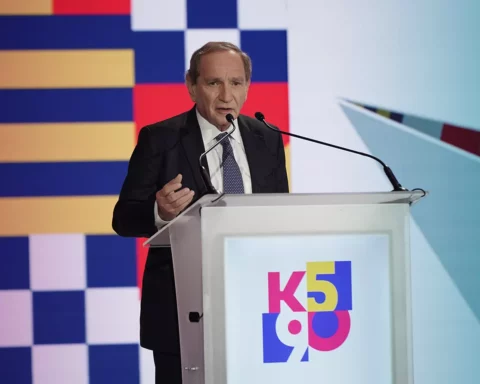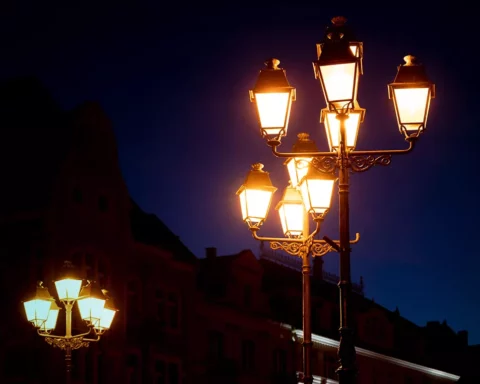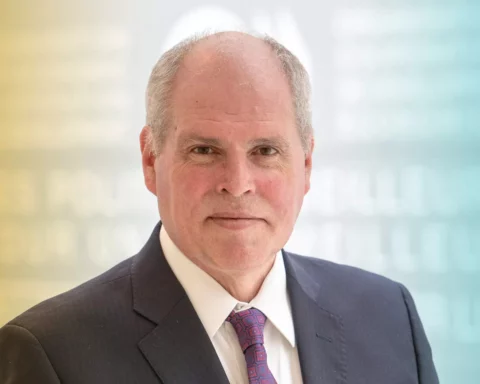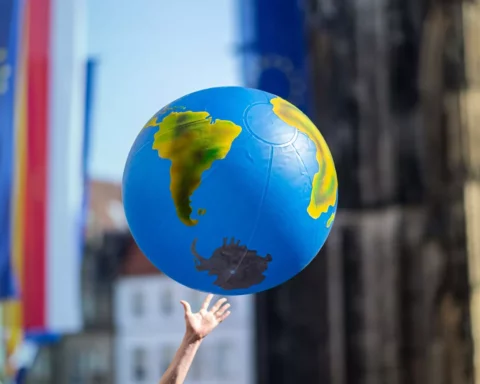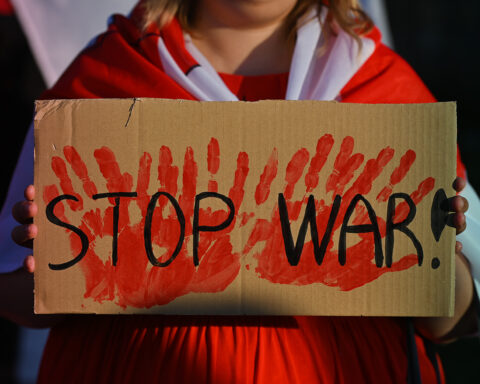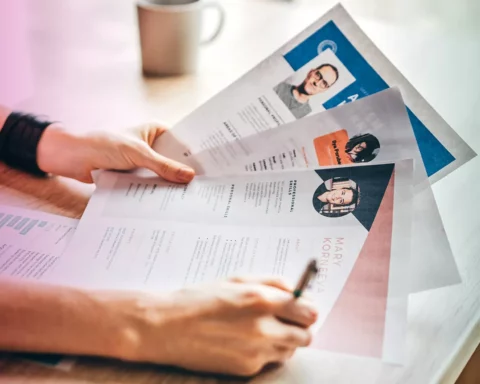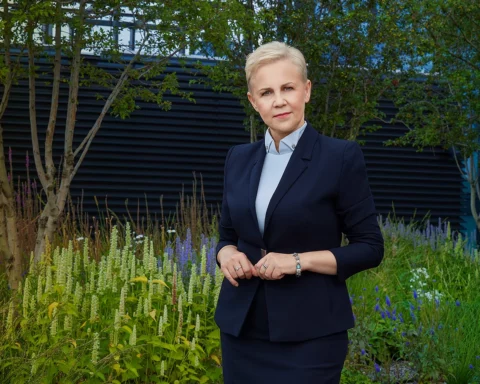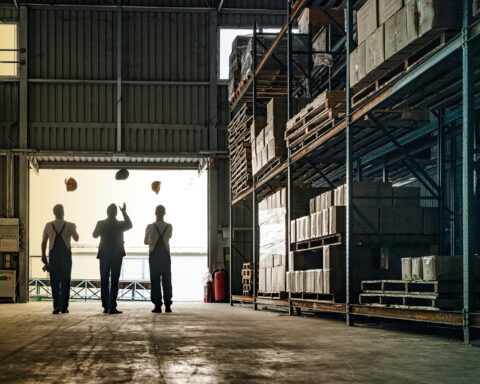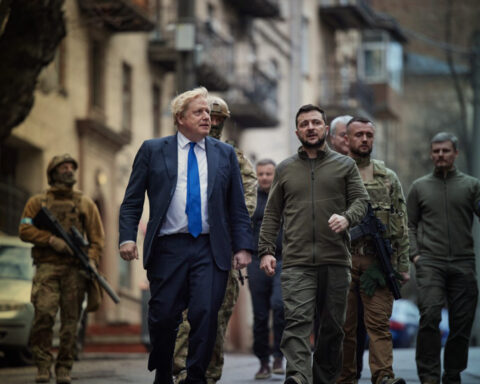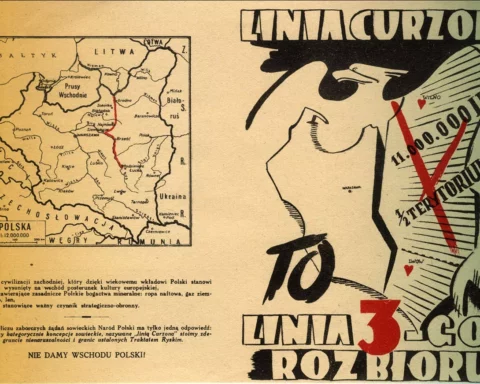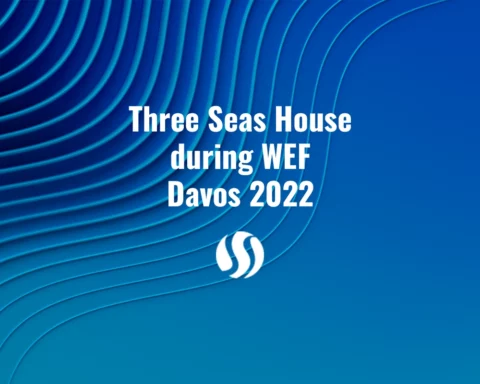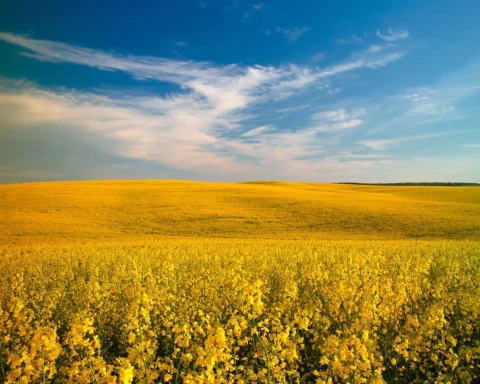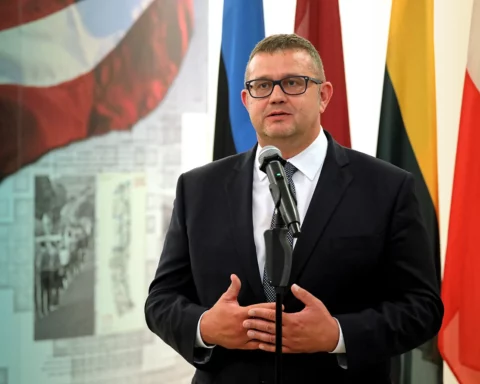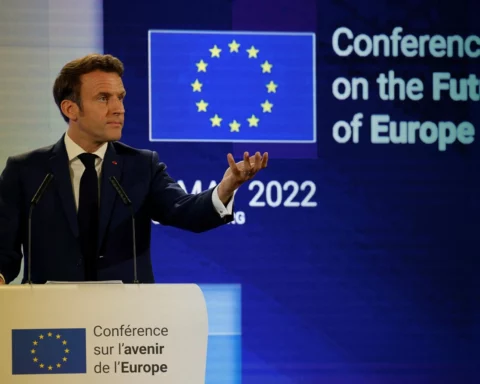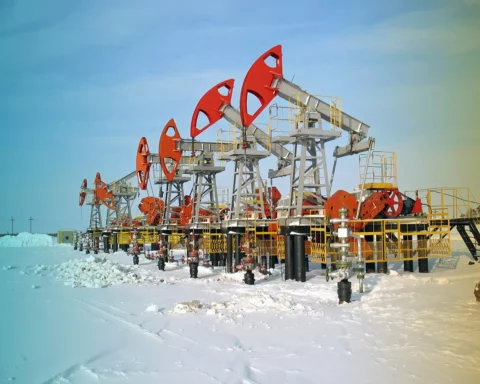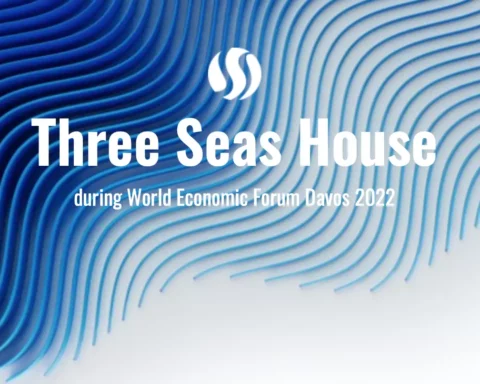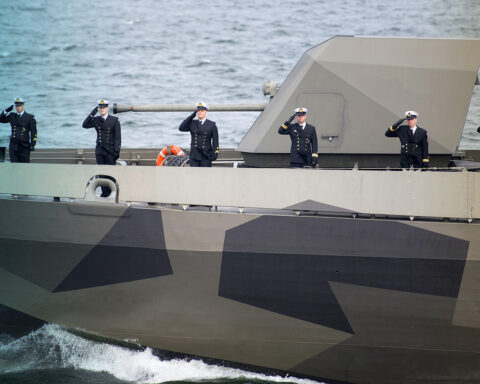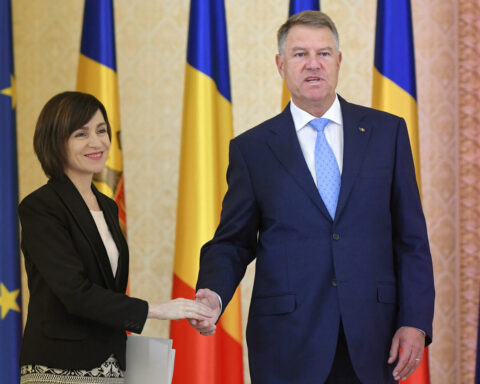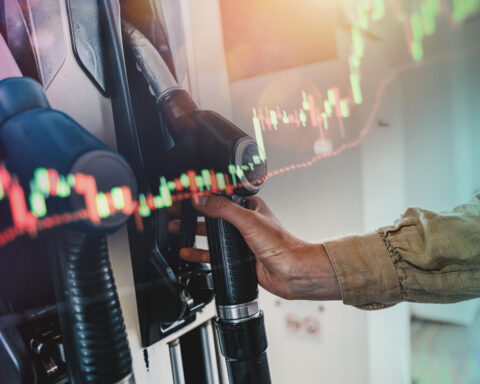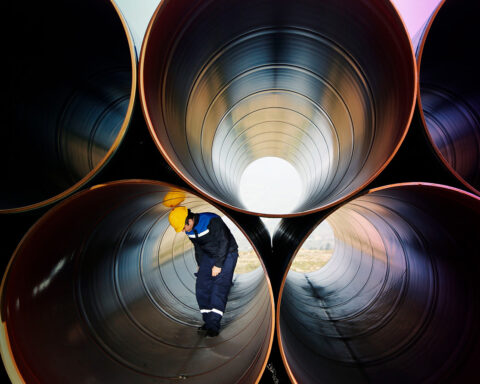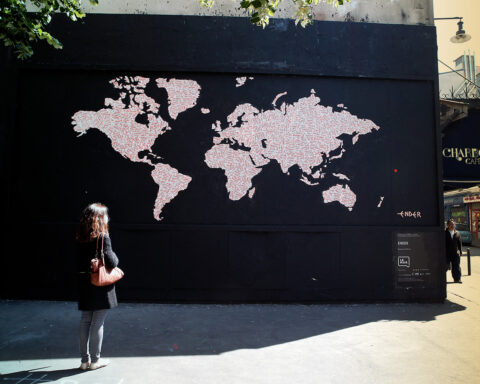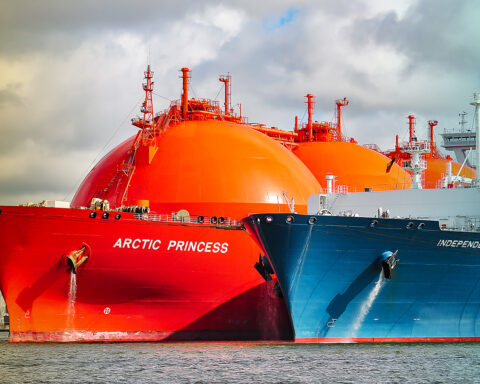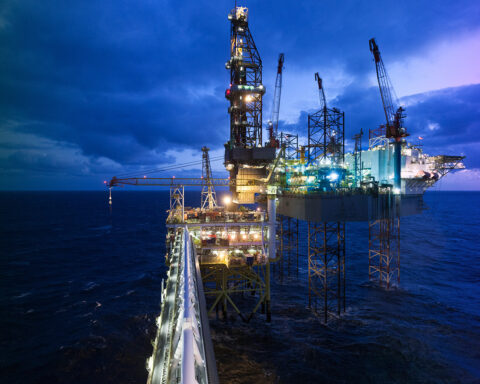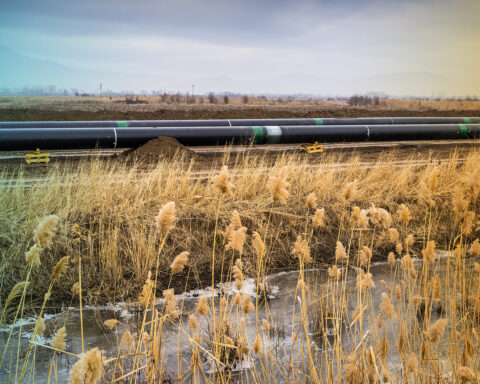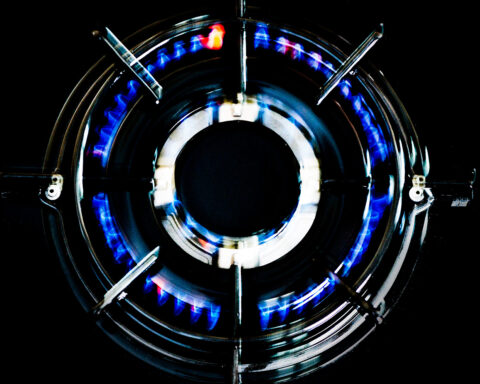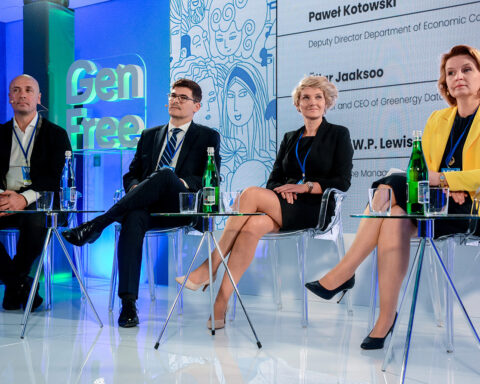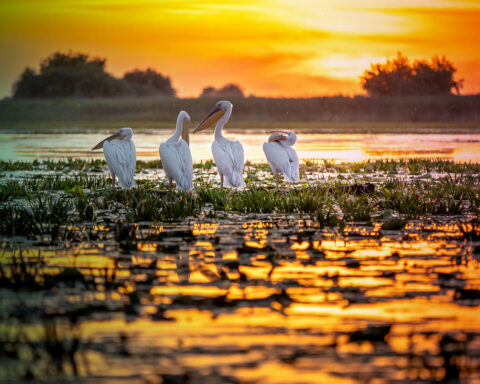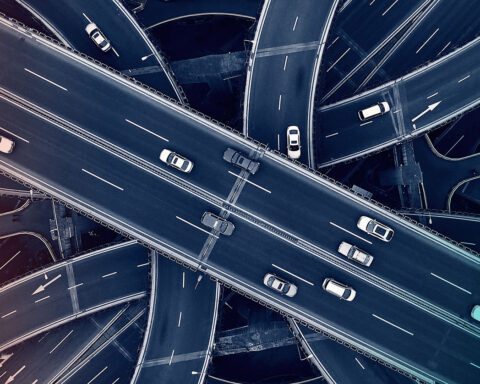In Central Europe, the acceptance of traditional EU policies is high. The situation is already different in Western European countries. These two trends will determine the future of the EU.
There are 35 million digital nomads globally. Three Seas Initiative countries are fighting hard to gain a significant share of this community.
In order to develop, Central Europe needs nothing more than innovation. Countries of the region are more and more aware of that.
Bucharest has recently unveiled plans to enhance its neighborhood relations with Belgrade in the form of helping Serbia in its aspirations towards joining the 3 Seas Initiative (3SI).
In September 2022, The Three Seas Initiative Investment Fund (3SIIF) acquired a significant interest in BMF Port Burgas, a major port operator in the Port of Burgas on Bulgaria's Black Sea coast.
The sidewalks of Tallinn bustle with people going about their daily lives. They are also full of adorable, 6-wheeled delivery robots ferrying take-out and groceries to hungry patrons. A strange sight to some, here, it's just a part of daily life.
Greece has become the new member of the Three Seas Initiative. Athens will bring a lot in terms of connectivity. But they also bring their own troubles.
Representatives of 13 Three Seas Initiative countries have won a total of 43 Nobel Prizes over time. Add this to the dozens of laureates who have roots in the region.
The Three Seas region will once again have its own pavilion at the World Economic Forum in Davos, Switzerland (15-19 January). For several days of the event, the Three Seas Hub will be the place where decision-makers, politicians, experts and business representatives will discuss the future and prospects for our region. There will be a wide range of topics to be discussed – foreign investments, artificial intelligence, security, green transformation or space, among others.
The Three Seas region will once again have its own pavilion at the World Economic Forum in Davos, Switzerland (15-19 January). For several days of the event, the Three Seas Hub will be the place where decision-makers, politicians, experts and business representatives will discuss the future and prospects for our region. There will be a wide range of topics to be discussed – foreign investments, artificial intelligence, security, green transformation or space, among others.
A remote island in Greece's Dodecanese archipelago has become the first in the Mediterranean to become entirely self-sufficient in energy. How has this changed life on Tilos, and will it inspire other islands to follow suit?
The recent meeting between U.S. Development Finance Corporation officials and Three Seas Initiative representatives in Poland signals a transformative leap for infrastructure investment and strategic collaboration in the region.
How strong is your 3Seas region country passport? Very.
Praised for its response to the aftermath of its debt crisis, Greece has been making steady progress in managing economic and fiscal challenges.
Looking at the map of rail connections in Europe, you can still see the Iron Curtain on it. But there is a chance that it will be gone by 2030, and CEE countries will have a network of high-speed rail links.
The region has been becoming a more and more desirable location for venture capital firms. The region is successfully attracting foreign investors as well as generating investment on its own.
Three Seas Initiative countries want to make the most of the economic opportunities opened up by the development of clean hydrogen technologies.
The incomes in the hands of the people in CEE countries coincide with the declared economic capacity of their homelands more than in Western European countries.
Following a complicated transition, CEE economies veered from centrally planned to free market systems. This shift reorganization created some of the EU's most dynamic and complex economies and positioned them in the global spotlight.
On 22-23 September in Warsaw, dozens of speakers, 50 young innovators from the region, and hundreds of guests came together for panel sessions and dedicated workshops.
Would any country ever give up part of its territory to ensure its continued prosperity? In the 17th century, the Republic of Dubrovnik did just that. How did the Neum Corridor divide today's Croatia and become a cheap tourist oasis?
Central and Eastern Europe have the OECD's lowest wealth gap, with six of the top ten most economically equal countries being 3Seas nations. Why is this, and what are the benefits for society?
Starting autumn with a summit of change, 3SI representatives gather this week in Bucharest to participate at the Investing into a Resilient Tomorrow (political meeting) and Business Forum sessions.
Faced with complex threats, organizations like Bucharest 9 (B9) enhance Europe's collective security and defense systems. By implementing joint initiatives and addressing risks, the format unites NATO's Eastern states under the same umbrella.
Central Europe, which has long lagged behind other parts of the continent with its transportation infrastructure, is finally getting a real chance to level the playing field.
Family-run Diplomat Dental isn't just your run-of-the-mill dental equipment manufacturer. Quite the contrary, they are using their vast experience to push the boundaries of innovation when it comes to production processes and creating some unexpected partnerships in the meantime.
The war in Ukraine showed all the European countries how vulnerable their plans and infrastructure were. Czechia was no different, so it is now revising its crucial security strategies.
The labor market of Central European countries is doing better than in much of the EU. In addition, it is proving highly resilient to unforeseen crises.
The gender pay gap is a topic that has been upsetting the public in recent years. What is the situation in the Three Seas Initiative countries, and is the region better off than the rest of Europe?
CEE countries have a number of holiday-specific assets. Not only nature and monuments but also well-developed infrastructure and fairly low prices.
Value-Added Tax (VAT) is the most common source of government income worldwide. What is the VAT situation in Czechia and the Three Seas Region, and can the proposed Czech changes ignite a VAT revolution?
NEoT Capital and the Three Seas Investment Fund (3SIIF) have formed an alliance to remodel public and commercial transport in Central and Eastern Europe (CEE). Thanks to this partnership, it might just happen sooner than we think.
Driving European progress, the Three Seas Fund's subsidiary, CARGOUNIT, supercharges its expansion with a game-changing locomotive lease to Romania's Unicom Tranzit.
It seems that flying drones have reached their optimal shape when it comes to the control and the propulsion systems consisting of four or more rotors. Is there anything else that could be invented in this regard?
A consequence of the war in Ukraine will be the need to increase defense spending. Central European countries are already starting to understand this.
Since 2016, Romania has sat at the top of a very important poll regarding equality in the workspace. What is Romania's secret to achieving a nearly zero gender pay gap, and what is the reality?
It was to rule the waves and lead the Austro-Hungarian Kriegsmarine to victorious battles. Alas, it was sunk by a small torpedo. The first and last Hungarian battleship's fate is also linked to the story of a certain Polish invention.
The countries in the Central European region are very serious about economic freedom and supporting entrepreneurship. This is confirmed by the Index of Economic Freedom.
How long did it take until Bulgaria found its current location in southeastern Europe?
The attitude to history very much distinguishes Central Europe from Western Europe. The war in Ukraine means that these differences will remain present for many years to come.
Two years ago, there were claims that the Polish Solidarity Transport Hub was unnecessary since the infrastructure of Western Europe is sufficient to transport people and goods over long and short distances. It turns out that the opposite is true.
Dreams of future coastal cruising along the beautiful coast of the Black Sea.
Central European countries are successful in attracting investment from abroad. But they are also increasingly becoming exporters of capital for investment themselves.
Bram Stoker and Jules Verne, defining figures in the world of literature, took great inspiration from the Romanian lands - despite having never stepped foot inside the country.
Is it the city's beauty or just the collateral benefit from Poland’s role in the most important historical event in years, namely the war on Ukraine? Regardless, it suffices to say that Warsaw deserves its title of the European Best Destination of 2023.
Due to its history, Central Europe is very sensitive about its own security. That is why since the outbreak of the war in Ukraine, the importance of the EU in the eyes of the people of CEE states has started declining.
The people of Central Europe dream of becoming ordinary, average inhabitants of Europe, its middle class. This dream is driving CEE countries - but it is also coming true more and more.
One Romanian start-up aims to charge your vehicle up to 80% in 10 minutes, making long
distance travel possible, first in Romania and then throughout the rest of Central and Eastern
Europe.
The issue of atomic energy for Poland is accelerating. Three major players – reactors manufacturers - were fighting for the contract to build Poland's first power plant. The showdown between them was as if modeled on the Game of Thrones intrigues.
There’s a fierce fight brewing between three competitors vying to build the fifth nuclear reactor of the Dukovany Nuclear Power Plant in Czechia. Who is most likely to win?
The Ruse-Varna railway line, the original final stretch of Europe’s Orient Express, is about to be modernized, benefiting Bulgaria, the EU, and the Three Seas Initiative.
The countries of Central Europe still have not shaken off the stigma left on the region by the two forms of totalitarianism that dominated the 20th century: Nazism and Communism.
People from the Polish town of Ząbkowice Śląskie see their connection with the first proper science fiction novel ever created. And there's a reason for that: until 1945, the city was known by its German name: Frankenstein.
The Danube-Oder-Elbe water corridor is the missing link that would connect Czechia to the rest of the European waterways. This multifunctional water project could raise the global importance of the Three Seas Region in the World Economy.
This clever ticket vending machine doesn’t take cash or cards. Instead, it requires you to do 20 squats for a free bus ride in exchange. And Romanians love it.
Central European countries were the first to experience the shock of neighboring an open, full-scale war. But watching their reaction also shows that they will be the first to adapt to the new reality.
Tired of choosing the same old destinations for your holidays? Why not try something new! Central and Eastern Europe has lots to offer!
That, my friend, is an excellent question. Everyone seems to know where Western Europe is. And everyone seems to be an expert on calling everything else the East. But hey! What happened to the Center?
Socialist Romania struggled for a position on the map of Eastern tourist destinations for Western visitors. In doing so, it lured tourists with long-legged waitresses and Elena Ceaușescu.
Over the last several years, the Three Seas countries have seen astonishing success in exports. In order to continue that success, what is needed now is diversification.
The long-awaited Three Seas Generation Freedom Conference 2022 has just kicked off in Warsaw, Poland. Notable figures from the world of politics, business, and international affairs have come together to share their expertise on the different facets of freedom.
The war in Ukraine caused by revived Russian imperialism requires us to remember the real meaning of the word freedom. The Three Seas Generation Freedom Conference will once again bring together recognized experts from around the world.
George of Poděbrady, the king of Bohemia in the 15th Century, came up with a crazy idea. He dreamed of creating an organization to include all European nations. They would hold important meetings on an international level and vote on topics in a parliament-like manner. Crazy right?
Geopolitical forecaster George Friedman says that a regional military alliance, with some supporters from the US, can be strong enough to keep Russia from invading the Three Seas region.
Forget about Paris and London – the Romanian city of Timișoara paved the way for Europe’s transition to electrical street lighting. Discover the story behind the original City of Lights.
3SeasEurope sits down for an interview with the Deputy Secretary-General of the OECD Jeffrey Schlagenhauf.
People from Central European countries are more attached to their personal liberty than Westerners. This is one of the consequences of almost 50 years of communism in the region.
For many years Europe has been deeply divided over attitudes to war. Russia's aggression in Ukraine showed that Central European countries were more realistic about the risk of armed conflict.
Central and Eastern European countries observe relatively low rates of unemployment, which are generally lower than in “Old EU” countries. While this might be seen as a success, the reality is not as optimistic as the data suggests.
3SeasEurope spoke with Beata Daszyńska-Muzyczka, the Chairperson of the Supervisory Board of the Three Seas Initiative Investment Fund, about her thoughts on the 3SI intra-regional cooperation and what can the Initiative do for the Western Balkans 6 and Ukraine.
The main engine for the Central Eastern European (CEE) economies is foreign investment, attracted by cheap labor. Are rising wages leading to a loss of competitiveness, and, if so, how should the economic development model adapt to this new reality?
The UK may not be an EU member state anymore, but even so, Albion has interests in the region that seem set to strengthen in connection with the increased focused security issues connected to Ukraine and NATO's eastern flank.
Russia has repeatedly either "invited" Poland to take part in partitioning Ukraine or accused Poland of plans to do so. The Curzon Line, drawn a hundred years ago, helps to understand the distinction amid the current military buildup.
The Three Seas House opens its doors for the first time during the World Economic Forum in Davos, in May 2022. It was established to highlight the progress and potentials of the Three Seas Initiative.
Economic relations between Three Seas countries and Ukraine before the war were strong compared to other EU countries. This provides a solid foundation on which future relations can be strengthened.
We asked Latvia’s Ambassador for the Three Seas Initiative, H.E. Edgars Bondars, about Latvia’s vision for this year’s Three Seas Initiative summit.
Nearly all Three Seas states have signed a document warning the EU not to embark on a sudden and underprepared path to EU treaty changes following the recent conclusion of the Conference on the Future of Europe.
At the end of March, Poland announced it would halt imports of Russian oil by the end of 2022, and the European Commission followed suit, proposing a ban on 4 May.
Artist and minority activist Małgorzata Mirga-Tas's work has taken the Polish Pavilion at the Venice Biennale of Art 2022 by storm. Her exhibition shows tapestries, attempting to weave the history and contribution of the Roma community back into European art history.
Three Seas House during World Economic Forum Davos 2022 The Three Seas House will open its doors for the first time during the World Economic Forum in Davos, in May 2022.
One of the results of the Central European awakening has been a series of geopolitical initiatives undertaken by nations trying to find their way in this new reality. An idea made even more relevant in the face of Russian aggression in Ukraine.
The imminent NATO membership application from the two Nordic states will transform regional security in the Baltic Sea region, much to the benefit of the three NATO member states most exposed to Russian aggression.
Support in Moldova for their state to unify with Romania has increased significantly in the past few years. If it became reality, it would result in the first merger of two states since the 1990 mergers of Yemen, followed by Germany.
Against a background of consumer inflation already on the rise, the Russian invasion of Ukraine has only added more fuel to the fire, driving inflation sharply higher.
The Baltic states are building Rail Baltica - a high-speed railway that will finally connect them to the rest of the EU. It is set to be completed by 2030 and will allow travel across Baltic countries in less than four hours.
The new GIPL gas pipeline has connected Finland and the Baltic states to the EU’s gas transmission system just as Russia cuts off gas supplies for Poland and Bulgaria.
The future of the Three Seas depends not only on the implementation of key infrastructure projects but also on the widespread popularization of the concept itself. However, more than five years have passed since its launch, and its objectives are still not widely known. Why is this?
Creating telecommunication connections and innovative digital solutions is the key to the success of the 3 Seas Initiative (3SI) - the most important geopolitical project of our times. Latvia's rotating chairmanship of the 3SI begins in 2022. And this is a good thing.
Natural gas will now arrive in Lithuania from across the world to a floating regasification unit fully owned by the state.
2022 is expected to be the year in which Romania takes the final step to launch major extraction of Black Sea gas.
The Ionian-Adriatic gas pipeline is entering a crucial planning phase. If everything goes according to plans, Azeri gas will soon start flowing to countries in the Western Balkans and further north.
The construction of the BRUA gas pipeline has received another permit, making it more likely that Europe will be able to increase the diversification of its energy supplies.
A conference for the future leaders of the Three Seas Region.
FAIRway Danube project returns hope to areas around the revered river
The Three Seas Initiative project will be crucial to the integration of 5G communication in the region.
More than 30 years after the fall of communism, Central Eastern Europeans will finally be able to travel north and south in comfort.
A reform of EU debt rules is on the horizon, so the question will be in which direction Central Eastern Europe can swing it.





